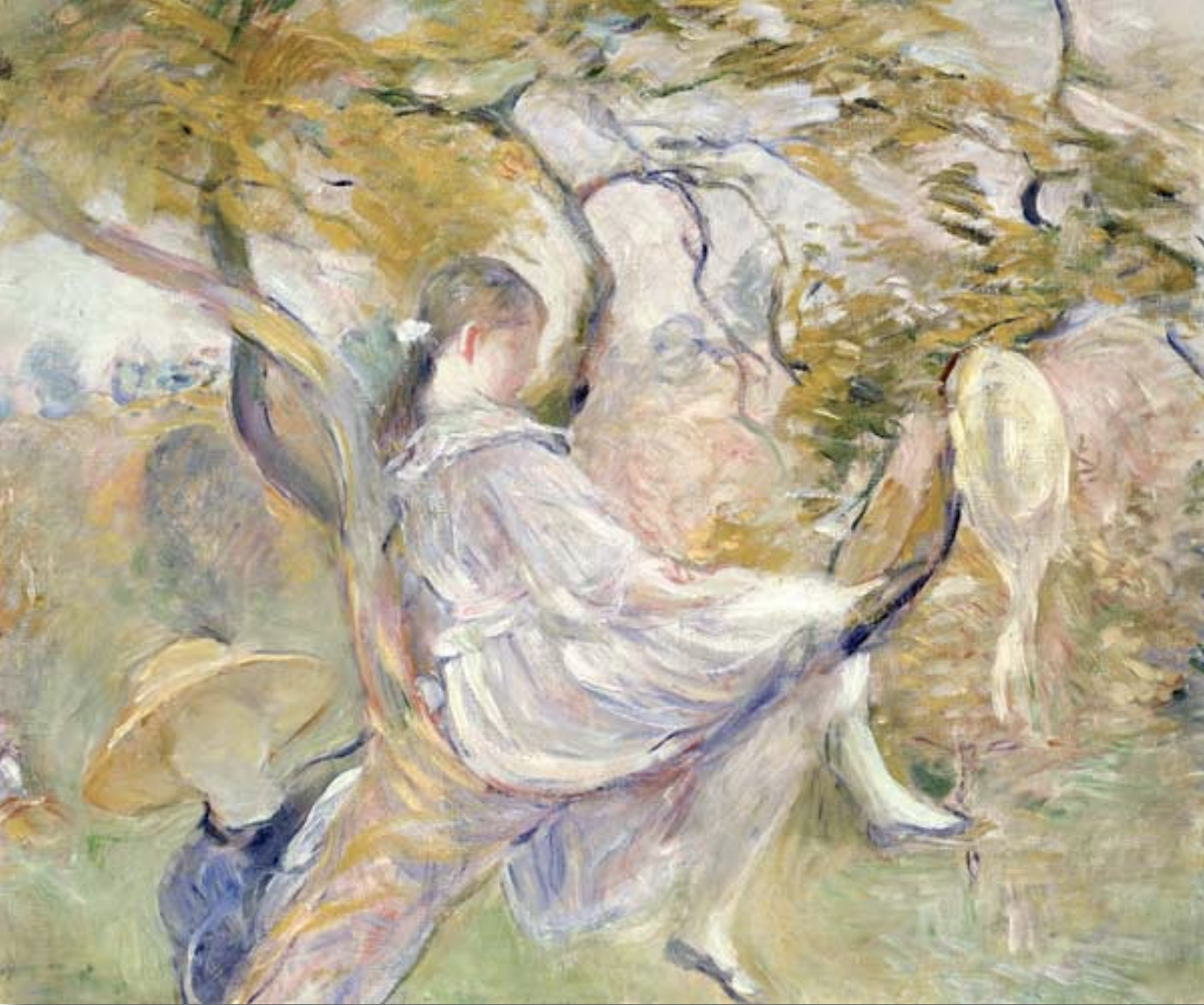Berthe Morisot: ‘Wanting to Capture the Smallest Thing’
Berthe Morisot - Young Woman Watering a Shrub
'It is important to express oneself... provided the feelings are real and are taken from your own experience.’
Berthe Morisot
I recently attended an exhibition of the work of Berthe Morisot. ('Shaping Impressionism' is at The Dulwich Picture Gallery, London, until 10 September.)
Morisot was a pioneer, a founding member of the Impressionist movement. Constrained from painting in public, she created works of private reflection and quiet calm. She teaches us to treasure brief moments and small gestures, stillness and restraint.
‘My ambition was limited to wanting to capture something of what goes by, just something, the smallest thing.’
Morisot was born into an affluent family in Bourges, France in 1841. Her father was a civic administrator, her mother was related to the Rococo painter Fragonard. Since the art schools of the time were closed to female students, she was taught privately by tutors who included the landscape painter Corot. Copying works in the Louvre, always chaperoned, she met Renoir and Fantin-Latour; Degas, Manet and Monet, and became part of a lively artistic set. Manet painted her portrait on at least 11 occasions, transfixed by her intense gaze, her dark hair, eyes and dress.
'Dreams are life itself – and dreams are more true than reality; in them we behave as our true selves – if we have a soul it is there.’
In 1864 Morisot began submitting her work to the Paris Salon. In 1874 she married Manet’s brother Eugène and participated in the first Impressionist exhibition. She went on to exhibit at all the subsequent Impressionist shows, except that of 1878, when she was recovering from the birth of her daughter, Julie.
'Real painters understand with a brush in their hand.’
Berthe Morisot - In the Apple Tree
Whereas the male Impressionists often painted the bustling life of the city’s streets, cafes and clubs, Morisot was restricted by her class and gender to domestic scenes. Her work captured women and children at home and in the garden: secluded private moments, intimate interior lives.
Morisot’s sister Edma waters her shrubs in her long white day dress. Two girls play at catching a goldfish in a basin. Madame Escholier regards us with her clasped hands resting on a writing desk. A young woman in a glamorous silk gown inspects herself in the mirror as she adjusts her hair, a precious instant of tranquility before the night ahead. Here’s Julie perched on the bough of an apple tree; Julie playing the mandolin; Julie toying with a pet chicken in her lap at the feet of a tired young maid. (Julie appeared in nearly 50 of Morisot’s canvases before the age of 12.)
'A love of nature is a consolation against failure.’
Morisot didn’t have a studio, painting instead in the living room and bedroom. Her brush strokes were loose and light, quick and free. One critic dubbed her ‘the angel of the incomplete’. She certainly had a knack for capturing the fleeting moment.
Social norms may have prevented Morisot from painting grand public scenes. But she made a virtue of this constraint and was quietly resolute.
'I do not think any man would ever treat a woman as his equal, and it is all I ask because I know my worth.’
Berthe Morisot - Woman at Her Toilette, 1875/80
She demonstrates the subtle force of the informal and intimate, the personal and private; the emotive power of ‘the smallest thing.’
In 1893 Morisot lost her husband and her hair turned grey with grief. She painted Julie dressed in mourning black, staring straight at us, a greyhound at her feet and one hand planted firmly on the sofa.
Two years later Morisot contracted influenza while nursing her daughter. Aware that she was fading fast, she wrote a letter of farewell to the 16-year-old.
'My dearest little Julie, I love you as I lie dying; I shall still love you when I am dead. I beg of you, do not cry; this parting was inevitable. I would have liked to be with you until you married – Work hard and be good as you have always been; you have never caused me a moment's sorrow in your little life. You have beauty, good fortune; use them well. I think the best thing would be to live with your cousins in the Rue de Villejust, but I do not wish to force you to do anything… Do not cry, I love you more than I can tell you.’
Morisot died soon after. She was 54.
Berthe Morisot - Julie Manet and her Greyhound, Laertes, 1893
'A cigarette that bears a lipstick's traces,
An airline ticket to romantic places,
And still my heart has wings.
These foolish things remind me of you.
A tinkling piano in the next apartment,
Those stumbling words that told you what my heart meant,
A fair ground's painted swings.
These foolish things remind me of you.
You came, you saw, you conquered me.
When you did that to me,
I knew somehow this had to be.
The winds of March that make my heart a dancer
A telephone that rings, but who's to answer?
Oh, how the ghost of you clings!
These foolish things remind me of you.’
Ella Fitzgerald, 'These Foolish Things (Remind Me of You)’ (H Link / H Marvell / J Strachey)
No. 417



